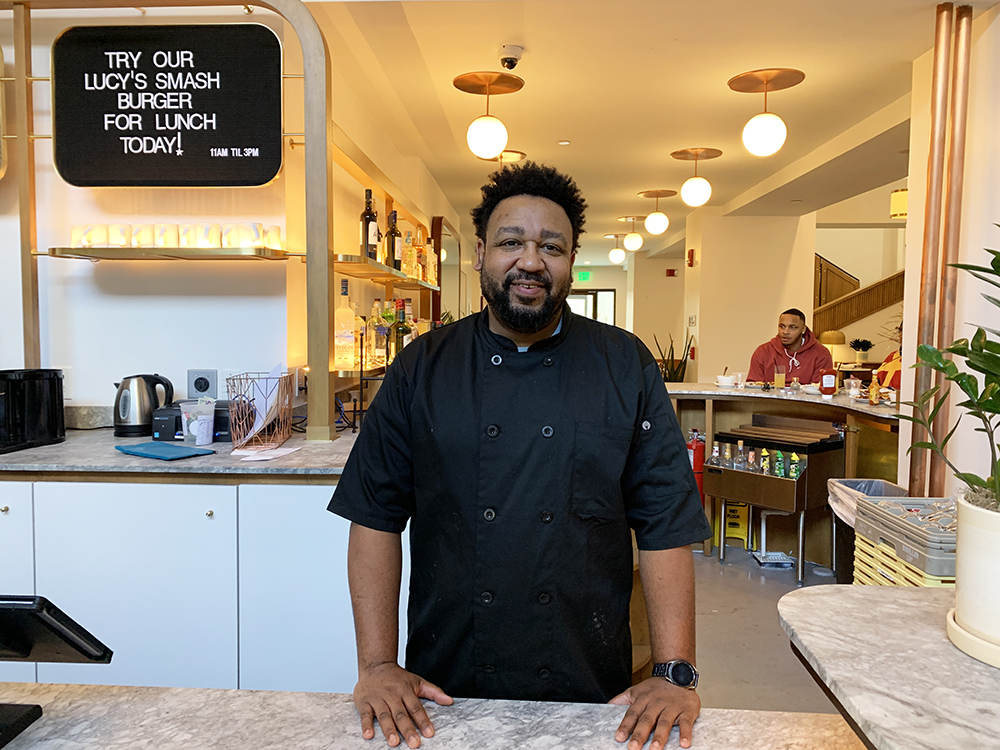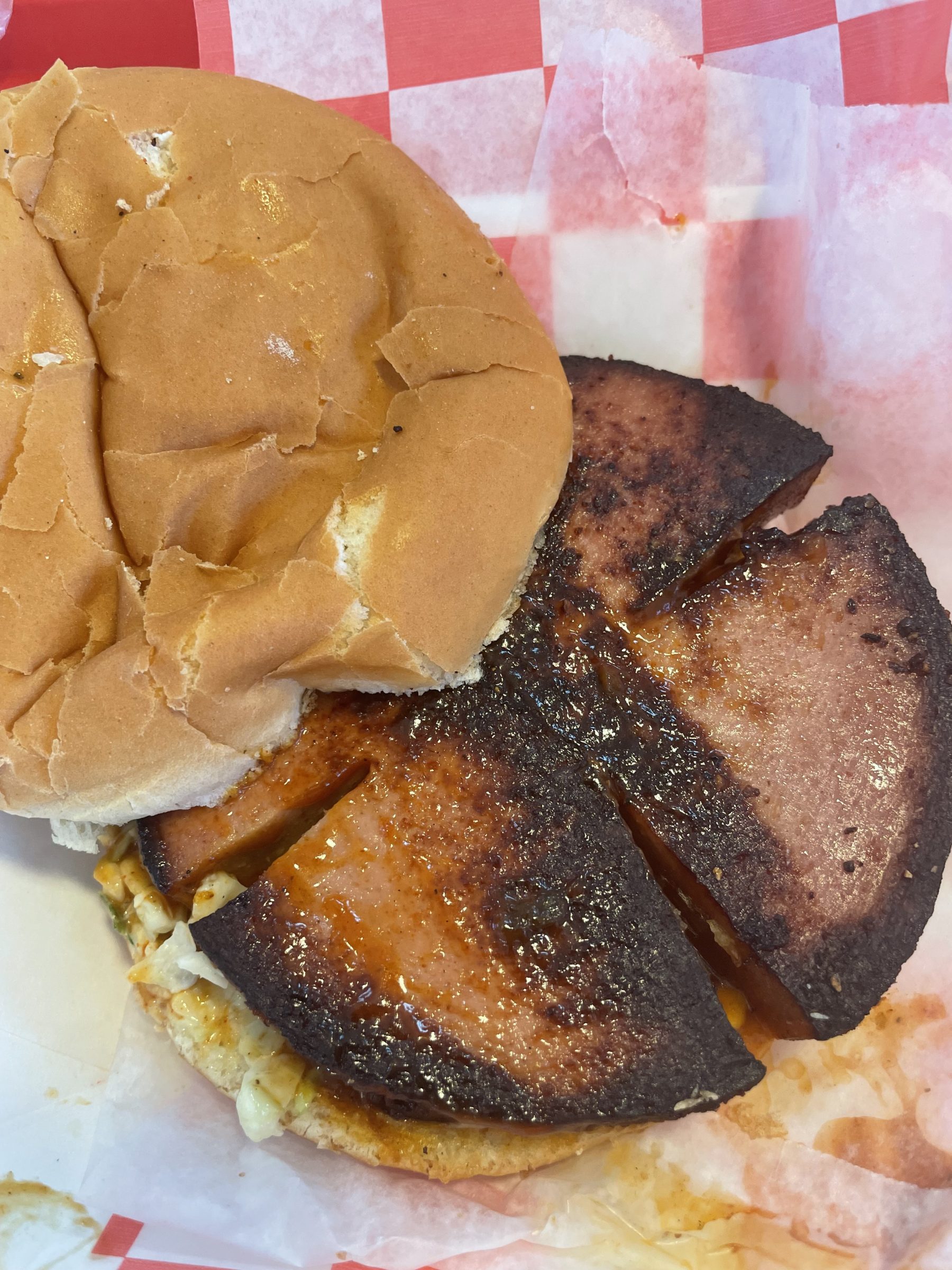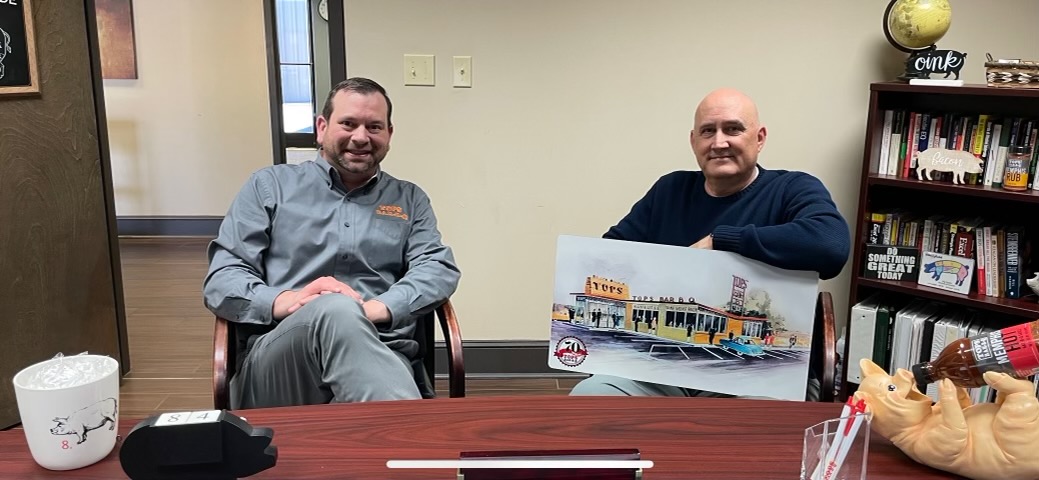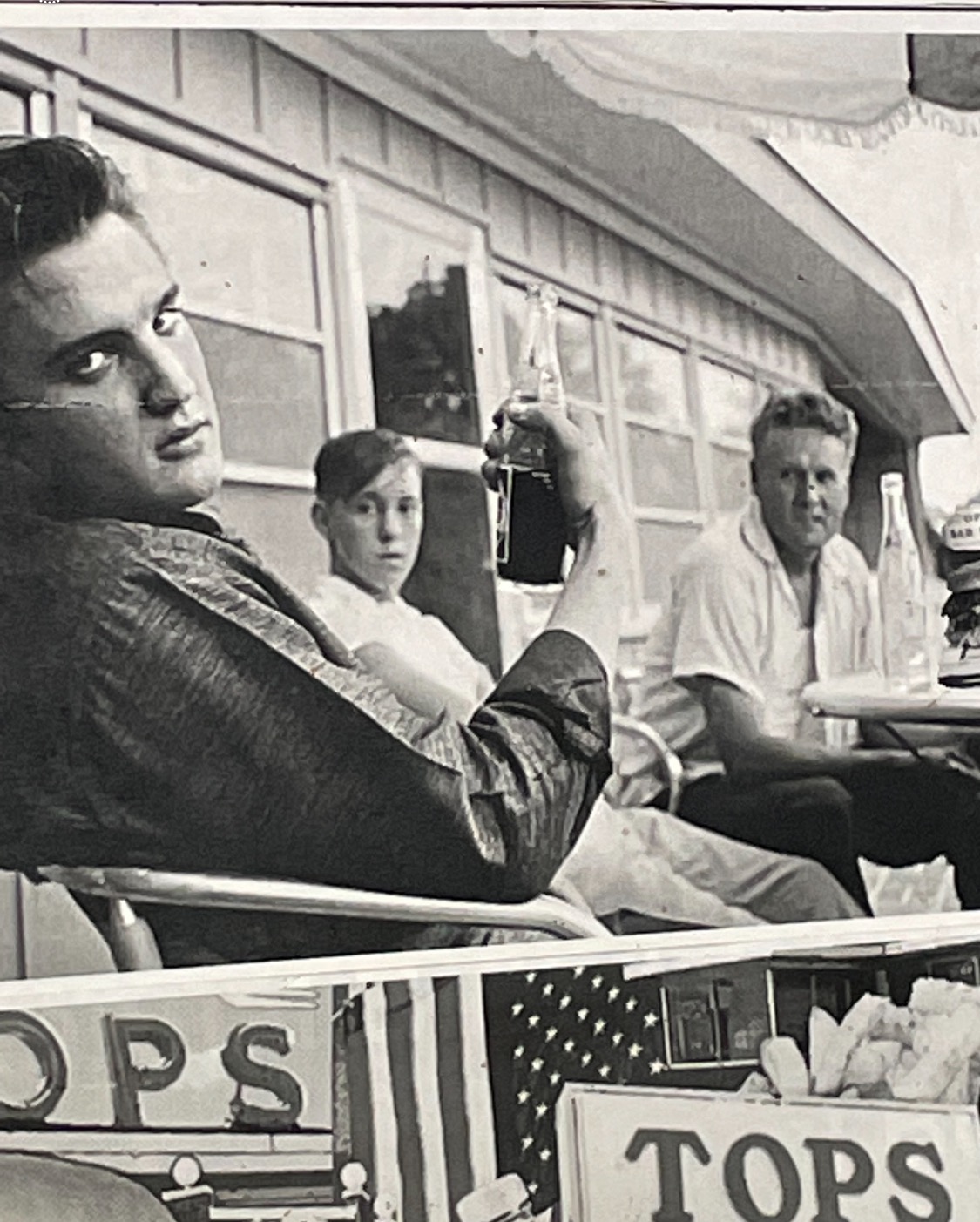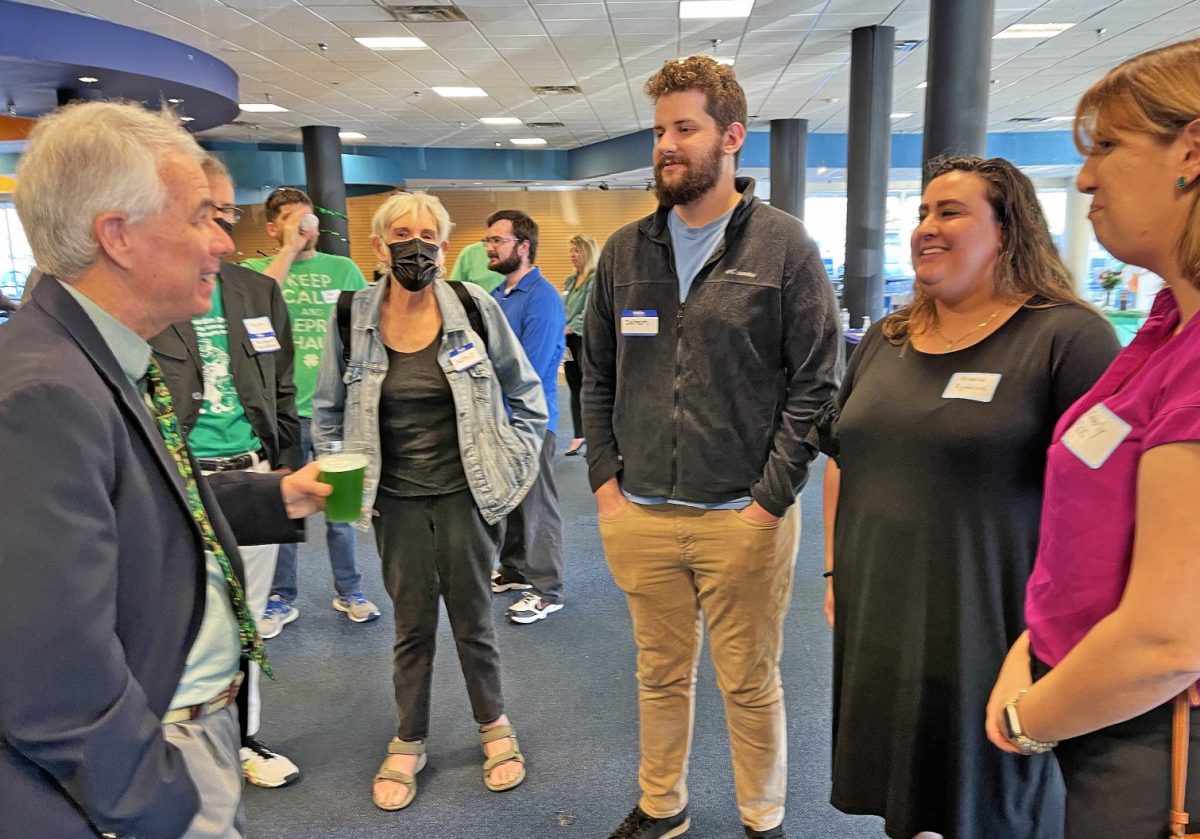Mario Monterosso is no stranger to these pages, having moved here nearly six years ago from Rome, quickly becoming a fixture in the local roots-rock scene. He’s often seen accompanying Dale Watson at Hernando’s Hide-A-Way or, more recently, leading his own combo through a mix of originals, Louis Prima, and Chuck Berry. But anyone familiar with these outings may be surprised at Monterosso’s recent solo album, Take It Away (ORG Music), a largely instrumental affair that showcases the guitarist’s eclectic influences. Roaming effortlessly from spaghetti Western soundtracks to surf to blues to Mancini-esque jazz, Monterosso’s originals offer a guided tour through the instrumental sounds of the ’50s and ’60s. And that’s just how he wanted it.
“Early in the 2020 quarantine, Dale Watson recorded an instrumental album, Dale Watson Presents: The Memphians. I co-wrote four of the songs. And I thought, ‘Wow, instrumental albums are really cool.’ It’s a different way to conceive of and write a song, in terms of composition. When you have lyrics, they bring people somewhere through the words. But when you write an instrumental, it has to be the melody that brings people somewhere. And so instrumental songs have to be simple. From bossa nova records to Duane Eddy or Chet Atkins, they use simple melodies. That’s the one thing that remains in people’s heads.”
As the pandemic caused most gigs to dry up, Monterosso did what many of us did during quarantine: He watched TV. But inspiration waited for him there. “One night I was watching this very old edition of Zorro from 1975. I saw it with my parents in the theater when it came out. I was 3! And seeing it again, I thought the soundtrack was so cool. It was written by two Italians, the De Angelis brothers, also known as Oliver Onions. They wrote so many Italian soundtracks! So I thought, ‘Okay, I’m going to write a tribute,’ and I wrote ‘The Ballad of Zorro.’ After that, I kept writing instrumentals, and at one point I thought, ‘Okay, let’s do an album.’”
By then, with a host of new songs in his bag, the scenery had changed dramatically for Monterosso. “I went to Italy because my mother was dying. And it seems that some of my songs had been written for that event. It seems that way, but they weren’t. It was weird, writing a song entitled ‘Without You,’ with that atmosphere and even a theremin used like an opera singer or a ghost.”
The ghosts were especially present where Monterosso was staying. “I was staying in this old family house from 1701, about 10 miles from downtown Catania [Sicily] in Trecastagni, in the foothills of Mount Etna. That’s where I learned to play the guitar, when I was 13 or 14. So I called my friend Matteo [Spinazzé Savaris], who’s recorded all of my albums and some of Tav Falco’s albums in Rome. He came down to Sicily with all the equipment and we set it up inside my house. It was a great experience. We recorded live. I only did a few overdubs after. And I did it with all my old music mates, musicians that I grew up with. It was a beautiful experience.”
The final result is a genre-hopping tour through intriguing melodies and arrangements. It’s no surprise that Monterosso’s first instrumentals were made in collaboration with another great eclecticist, Arkansas native Tav Falco, who made his name as a music/art auteur in Memphis before relocating to Europe and recruiting Monterosso as his musical director. The instrumental version of “Master of Chaos,” which the two co-wrote, is a highlight of Falco’s Cabaret of Daggers album, and Falco’s recent Club Car Zodiac features an instrumental with a spoken-word monologue, “Tony Driver Blues,” based on a film of the same name. A similar Falco monologue lends Take It Away its only vocals as well, the noirish “Midnight in Memphis.” For Monterosso, it represents Falco’s profound influence on his life. “When he writes, Tav has the ability to bring you in and put you somewhere,” he says. Beyond that, Falco brought him to Memphis. “I will always be grateful because Tav was my boat to Ellis Island.”

